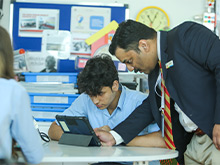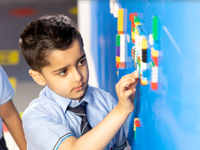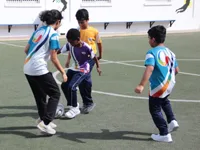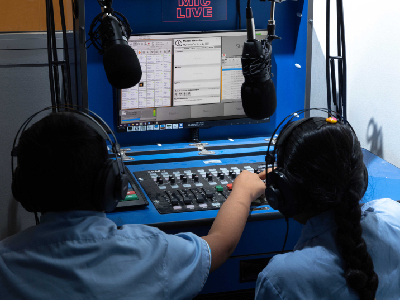To ensure the holistic development of the learner, you need to make sure that you choose the right afterschool program. Outside classroom learning plays a chief role in instilling essential skills among the students.
After school programs are the most important components of outside-classroom learning. In such programs, students can harness their competencies and gain crucial skills.
In this guide, we will highlight the crucial rules that will enable the parents to select the ideal after school program.
Let’s begin.
1. Lower teacher to student ratio
The idea of an afterschool program is to advocate an individualized approach to learning in a more informal setting. It has to ensure that students feel comfortable and the subject matter expert can pay attention to each learner’s requirements.
That is why it is imperative to keep the teacher to student ratio in mind before selecting a program. It ensures that teachers can establish a stronger bond with the students and make sure they are comfortable with the learning setting.
2. Balance in structured and unstructured activities
It makes perfect sense to forge a schedule and enable the students to adhere to the pre-established learning standards. The method develops a consistent and structured plan for the learners. While these essentials should be a core component of the program, it is vital to give equal importance to the learner’s interests and energy levels.
If they are burdened with a lot of coursework in the classroom, the afterschool program should encourage them to indulge in leisure activities or bond with their peers. For example, in Global Indian International School, afterschool activities involve a collaborative learning approach with students of similar interests.
3. Ensuring safety standards
Afterschool programs encourage the students to transform their unproductive hours into fruitful learning experiences. More importantly, it utilizes the learners’ inquisitive nature to put into practice and ensure their safety.
If the stakes are this high, the program must have concrete safety standards that ensure students’ well-being. Teachers must be well versed in dealing with medical emergencies or with the learner’s behavior. Moreover, food requirements and cleanliness come under the aegis of safety standards. Hence, after making sure that the program can meet these needs, you can make an informed decision.
4. The expertise of teaching faculty
We discussed how teachers play a significant role in ensuring the safety and hygiene of the students. Similarly, their part is of paramount importance in the effective implementation of an activity. If a teacher is ill-equipped to foster a constructive environment to play a sports activity, it will be of no value to the learner.
Hence, it is essential to keep in check the expertise of teachers in mind. Enquire with the counselor or the administrators about the teachers’ proficiency level. You can ask questions like ‘are the faculty members industry experts’ or ‘how much experience do they have in teaching a particular subject/activity.’
5. Academic importance
The program should be an ideal environment for high achievers as well as struggling learners. The idea is to supplement the educational efforts of the teachers in the classroom and provide the students with their required needs.
Before making a decision, ensure that the program can cater to these requirements and give equal importance to leisure activities.
6. Variety in leisure activities
In the above pointer, we discussed the importance of academic training in afterschool activities. But we cannot sideline the essential nature of leisure activities and the variety of activities. Curricular work and stress of performance are at an all-time high, so it is ideal for learners to participate in events that give them a much-needed break.
Hence, it will help if the program has multiple activities to offer, such as extracurricular activities in sports like cricket, volleyball, chess, basketball, etc. Or co-curricular activities such as literature club, music, dance, and Model United Nations. The reason why variety in activities is essential because each learner has specific needs. Some perform well in basketball, while others may find comfort in joining a dance club.
Also Read: Productive Activities for Students
7. Value of fostering social skills
The objective of afterschool programs should not be limited to just encouraging learners to participate in multiple activities. Social skills should be a core component of the program. When learners can interact with other students with similar interests, it enables them to adopt a different perspective on their competency.
Let’s say one student is a good communicator. While interacting with another student who is part of the Model United Nations club, the individual grew motivated to join the activity. This social relationship will further enhance their communication skills and equip them with essential debating, social, and critical thinking skills.
Moreover, for a sports activity, the program should divide students into teams and stage competitions or tournaments. It will bolster companionship among the team members, and above else, winning the games will give them a sense of accomplishment. That is why it is critical to keep these essentials in your inquiry list before selecting an ideal afterschool program.
8. Identifying your objectives and the student’s goals
It will help if you assess your objective and the student’s goals before selecting a program. These pointers can be regarding gaining leadership qualities, having fun, or encouraging physical activity.
In contrast, it can be straightforward if the learner showcases affinity towards a particular activity. It can be cricket or robotics, but the idea is to address what the learner wants and if the program aligns with your objectives. If the activity matches the learner’s excitement and aligns with your objectives, then it will be easier for you to make a decision.
9. Hands-on learning
Classrooms are enough for abstract subjects and curriculum-based learning. The program should encourage learners to get their hands dirty and gain hands-on experience with practical learning.
Moreover, it will help if the school renders the real-life experience of a subject. The idea should be to familiarize the learners with a field of study by introducing guest speakers, industry experts, and practical experience. Choosing an afterschool program that upholds this learning method will help broaden students’ horizons and even improve their performance. Let’s say if the student was motivated after listening to the robotics engineer guest speak, it may select to provide them with consistency or set their learning objectives accordingly.
10. Open door policy – parent engagement
It is one of the most important essentials that you need to take into consideration before making a decision. It will help if you ensure that the program has an open-door policy for the parents to check on the students’ performance.
Key Takeaways
In the above guide, we discussed each facet of an afterschool program and the fundamental rules that will help you make a well-informed decision.
To conclude, here are a few key takeaways from the article:
● Pay attention to the teacher to student ratio. A low ratio will help in incorporating an individualized approach to pay attention to each learner.
● Check the balance in structured and unstructured activities along with the safety standards of the program.
● Enquire about the expertise of the teachers to ensure a useful mode of instruction.
● Verify how the program provides academic training to high achieving students and struggling learners.
● Make sure that the program offers a variety of activities so that it is in line with the learner’s objectives.
● Familiarize yourself with how the program advocates collaborative learning and stage competitions to bolster social skills.
● Check if the afterschool program leads with a hands-on learning approach and has an open door policy.
























